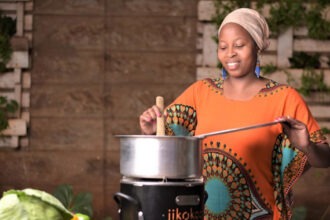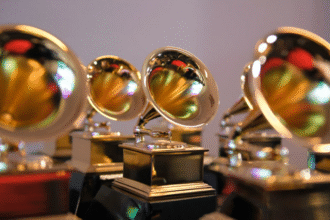When I first tuned in to Radio Clouds FM as a teenager in Dar es Salaam, the beats that filled the air were unmistakably American—heavy 808s, R&B chords, and verses that sounded like they had travelled straight from the Bronx. Yet the voices were local, rapping in Swahili about life in geto, corruption, and everyday hustle. That was my introduction to Bongo Flava—a genre whose roots stretch back to Tanzania’s encounter with global Hip-hop in the 1980s.
Bongo Flava was born out of democratization, privatization, globalization, and digitalization of media in the 1990s. They write that its earliest form emerged when Tanzanian youths began localizing imported Hip-hop, adapting it with Swahili lyrics and the rhythms of everyday urban life. The Swahilization of lyrics, pioneered by artists like Saleh J in 1991, marked a turning point—Hip-hop was no longer foreign; it was now Tanzanian.
The word “Bongo”—a Swahili slang for “brains”—was already a nickname for Dar es Salaam, implying that survival in the city required wit. The phrase Bongo Flava came from local radio DJs who used it to describe Tanzanian Hip-hop and R&B with a local twist. Over time, it became an umbrella for almost every youthful, urban sound produced in the country.
The Sound That Spoke for a Generation
In its early years, Bongo Flava wasn’t about money or fame—it was a voice for the streets. Artists like Profesor Jay, Juma Nature, and Mr II (Sugu) rapped about inequality, corruption, unemployment, and the frustration of life in the city. Their songs were described as kioo cha jamii—a mirror of society.
By the late 1990s, the genre’s social consciousness defined it. It was a form of cultural activism, shaped by Tanzania’s post-Ujamaa political values that encouraged artists to “educate society.” Even love songs had moral undertones, and battle rap—the braggadocious, confrontational style of American Hip-hop—was initially seen as un-Tanzanian.
But as I revisited those early tracks, I realized the “flavour” wasn’t just lyrical—it was linguistic. Swahili itself carried rhythm, humour, and wisdom. Bongo Flava sounded like Dar’s street corners: half-serious, half-playful, always clever.
That local wit was the first true signature of the genre. Yet musically, the beats borrowed freely from abroad—R&B, reggae, zouk, and even Indian melodies. If anything made it Tanzanian, it was the way we used those borrowed elements, not the elements themselves.
So What Really Makes Bongo Flava Unique?
In African pop, certain sounds are instantly recognizable. Amapiano’s deep log-drum basslines announce South Africa. Afrobeat carries Nigeria’s syncopated rhythms and horns. The Congolese have their own unmistakable guitar patterns—soukous, rhumba, ndombolo. But what about Tanzania?
Researcher Edson Wikedzi (2024) defines Bongo Flavour as “ladha ya hapa hapa”—the taste of home. Yet even he concedes that musically, it’s an open hybrid: artists mix rap with R&B or reggae “to attract a broad diversity of tastes.” That fluidity is both the genre’s strength and its identity crisis.
Unlike Afrobeat or Amapiano, there is no single rhythm or instrumental pattern that instantly signals “this is Bongo Flava.” Instead, its identity lies in its cultural positioning—the stories, language, and attitude of Tanzanian youth. The beats can come from anywhere; what makes it Tanzanian is the voice telling the story.
Still, that raises a difficult question. If a Tanzanian artist sang in Swahili over an R&B or trap beat produced in Atlanta, would it still be Bongo Flava? Yes, because the genre is more a social and linguistic construct than a fixed musical one. It’s about belonging, not structure.
That elasticity explains why today’s Bongo Flava can sound like anything—from the smooth R&B of Alikiba to the dance-pop of Diamond Platnumz, the street rap of Darassa, or the sultry ballads of Nandy. Each is distinct, yet all fly the same flag.
Has the Flavour Faded?
When I listen to modern hits like Diamond Platnumz’s My Baby or Marioo’s Mi Amor, I hear polished Afropop more than the gritty storytelling of the early 2000s. The sound is global now—Nigerian producers, South African log drums, Caribbean melodies. Bongo Flava has gone cosmopolitan.
But at what cost? Today’s Bongo Flava often “degenerates cultural and moral values” among youth, reflecting a shift from social commentary to sensuality and commercialism. Lyrics once filled with civic reflection now revolve around wealth, love, and luxury. The transformation mirrors Tanzania’s own socioeconomic changes—the rise of private media, celebrity culture, and digital influence.
Researchers observed the same tension over a decade earlier: the line between “pure Hip-hop” and the more “hybrid and commercial Bongo Flava” had blurred. Artists who once saw themselves as educators began to see themselves as entrepreneurs. The studios, TV presenters, and award shows became just as powerful as the music itself.
Listening to today’s chart-toppers, I can’t help but ask: have we traded the message for the market?
The Future: Evolution or Identity Crisis?
Every genre that survives reinvents itself. Afrobeat fused with pop to create Afrobeats; South African house evolved into Amapiano. Maybe Bongo Flava’s constant mutation is what keeps it alive.
Yet I still wonder: when foreigners hear our music, do they instantly know it’s Tanzanian? Or do they think it’s just another branch of Afrobeats with Swahili lyrics? The answer, perhaps, depends on how we define “flavour.”
If flavour means rhythm, then Bongo Flava might not have one. But if it means expression—the way we turn everyday struggles into melody, how we stretch Swahili to fit any global beat—then the flavour is unmistakable. It lives not in the sound, but in the storytelling.
Artists like Diamond Platnumz, who performs on global stages, and Nandy, whose voice bridges gospel and pop, show how Tanzanian musicians continue to localize global trends. Their work proves that Bongo Flava isn’t a single style but a cultural practice—a way of claiming space in the world’s soundscape.
So is Bongo Flava really a Bongo flavour? Yes—and no. It’s a flavour that keeps changing recipes, shaped by who’s cooking and what’s on the table. It may not have a beat that screams “Tanzania,” but it has a voice that speaks Swahili truth in a global tongue.
And perhaps that’s enough.















